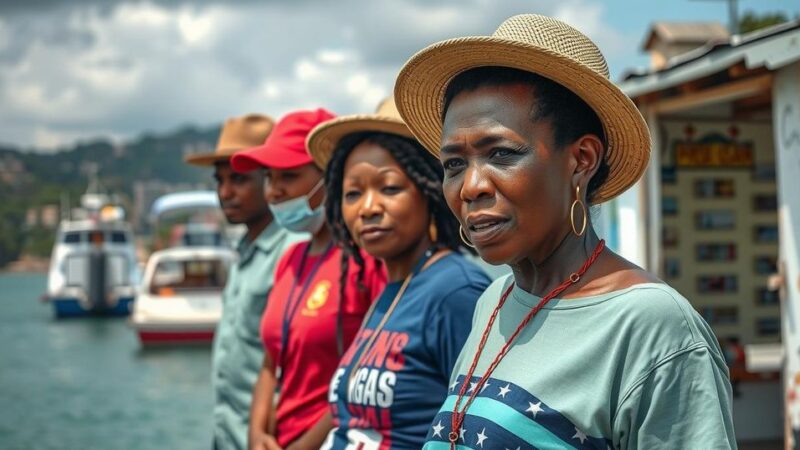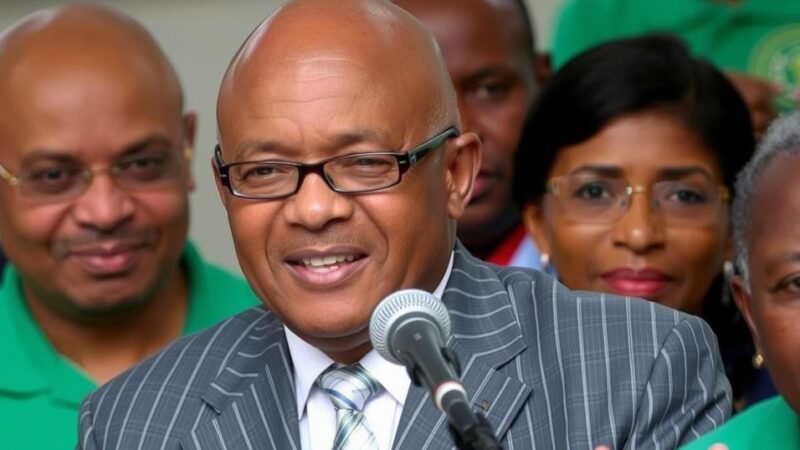President Javier Milei of Argentina has dismissed Foreign Minister Diana Mondino after the country’s UN vote to condemn the U.S. embargo on Cuba. Gerardo Werthein, the U.S. Ambassador, has been appointed to replace her. The government asserts a commitment to opposing authoritarian regimes and supports human rights, marking a significant shift in Argentina’s foreign policy.
President Javier Milei of Argentina has dismissed Foreign Minister Diana Mondino following the nation’s recent vote at the United Nations to condemn the longstanding United States embargo against Cuba. Mondino, who is 66 years old, will be succeeded by Gerardo Werthein, currently serving as Argentina’s Ambassador to the United States. According to Manuel Adorni, the Presidential Spokesperson, the official announcement of Werthein’s appointment was made via social media platform X. The Presidential Office released a statement asserting Argentina’s strong opposition to the Cuban regime and affirming its commitment to uphold a foreign policy that condemns any government that infringes upon human rights and individual liberties. The statement also revealed plans to conduct an audit of the career staff within the Foreign Ministry to identify individuals perceived as promoting agendas counter to the values of freedom. Although the communiqué indicated that Mondino had “presented her resignation,” her dismissal arose amid growing discontent regarding her performance. In recent months, Mondino had been absent from Milei’s international engagements, with the President frequently accompanied by his sister, Karina Milei, who serves as his chief of staff. The recent decision by Argentina to support the conclusion of the embargo against Cuba during the UN vote may have acted as the catalyst for her removal. Following the announcement of Mondino’s termination, President Milei shared a post on social media that expressed pride in a government that stands against dictatorships, indirectly referencing the situation in Cuba. Notably, the UN General Assembly voted overwhelmingly in favor of a resolution calling for an end to the economic blockade imposed by the United States on Cuba, garnering 187 votes in support, while only the U.S. and Israel opposed it. This vote represents a diplomatic and ethical win for Cuba, although it is recognized that the resolution will likely have minimal practical effects. The recent resolution marked the 34th non-binding declaration made by Cuba regarding the blockade since 1992, indicating a consistent international objection to the policy. Furthermore, this marks the first instance under Milei’s administration in which Argentina has diverged from the foreign policy alignment traditionally held with the U.S. and Israeli governments, a surprise to many observers who anticipated a shift towards a more U.S.-friendly stance. The diplomatic maneuver is significant in light of Argentina’s historical context in Latin America; there is a broad consensus among Latin American and Caribbean nations concerning the condemnation of the embargo against Cuba. Local sources within the Foreign Ministry acknowledged that opposing the U.S. and Israel at this juncture could present challenges diplomatically for Argentina, particularly since votes from Cuba and its allies may be necessary in future deliberations on Argentina’s sovereignty claims over the Malvinas (Falkland) Islands. Additionally, only two weeks prior to Mondino’s ousting, Milei had dismissed Argentina’s ambassador to the UN, Ricardo Lagorio, reinforcing his administration’s commitment to a distinct foreign policy direction. Mr. Werthein, Mondino’s replacement, is not only a businessman but also serves as the vice-president of the International Olympic Committee, bringing considerable experience to the role of Foreign Minister.
The dismissal of Foreign Minister Diana Mondino comes in the wake of Argentina’s decision to vote against the U.S. embargo on Cuba during a recent United Nations assembly. Historically, Argentina has aligned itself closely with U.S. foreign policy, making this decision notably significant as it symbolizes a potential shift under President Milei’s administration. Amidst mounting pressure and speculation concerning Mondino’s performance, her removal underscores the administration’s intention to implement a more cohesive foreign policy that may diverge from traditional alliances, particularly with the U.S. and Israel. Thus, Milei’s government appears to be recalibrating its diplomatic stance within the larger context of Latin American solidarity with Cuba.
In conclusion, President Javier Milei’s dismissal of Foreign Minister Diana Mondino reflects a profound shift in Argentina’s foreign policy, emphasizing a clearer stance against authoritarian regimes while aligning with the broader Latin American sentiment favoring Cuba. With the appointment of Gerardo Werthein, a businessman with influential ties, as the new Foreign Minister, it remains to be seen how Argentina will navigate its international relationships. The recent UN vote against the U.S. embargo represents a pivotal moment for Argentina, positioning it distinctively within the spectrum of global diplomacy.
Original Source: www.batimes.com.ar







